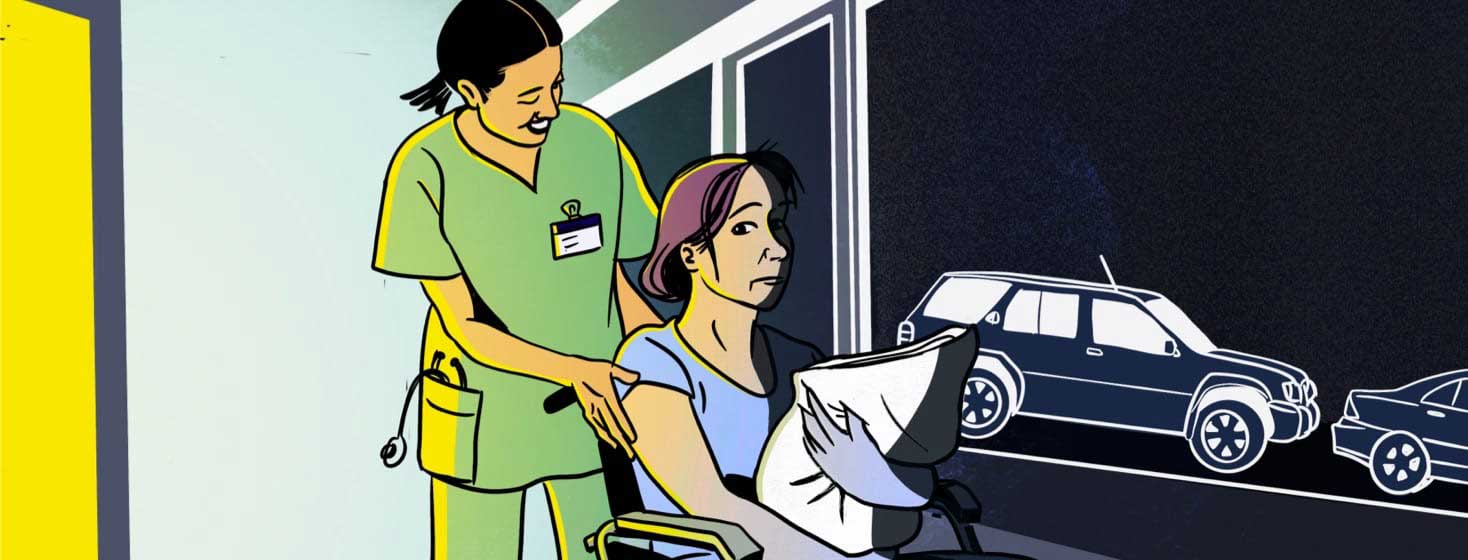Tips For Home After Exploratory Laparoscopy
Have you had exploratory laparoscopy surgery to see if endometriosis is the cause of your undiagnosed abdominal or pelvic pain? After this diagnostic surgery, you would need to meet the standard requirements to go home which would include being able to use the bathroom on your own and eating/drinking without vomiting.
If you receive the green light to discharge, it's time to go home.
Preparing for life after surgery discharge
You sign the discharge papers, well, your driver probably signed them, and you’re in a wheelchair and out the door before you can hardly even blink.
The discharge papers are super generic, most likely telling you things like:
- Don’t make any important decisions or drive for 24 hours
- Eat whatever feels right
- Call if your incision(s) look angry or turns red, develop signs of infection, or your temperature is over 101.5 (this varies between physicians and should be in your discharge papers)
- Stay on top of your pain medication
But now what? What’s next?? What advice do I wish someone had given me!?
That’s what I’m going to tell you now in hopes that it helps someone. I’m only sharing what helped me or what I was told following my three or four laparoscopic surgeries. Remember, always check with your medical team if you have any issues.
Using a pillow to help with pain
You will want to get your hands on that pillow you brought when you get in the car. Put this under your seat belt so the pillow gets the brunt of the pressure if there are any sudden stops.
The pillow will also become very handy when you get home. Your belly will likely be sore and tender for a few days.
It can help you when you get up and down, sneeze, or cough. Using the pillow to take the brunt of the pressure will help with that pain.
Why do we get gas pains after surgery?
What causes the gas pain following surgery?? When you have laparoscopic surgeries, the doctor uses gas to blow your belly up. Which is done so they can see exactly what they are working on.
They try to get all of that out of your belly before they close. But it is hard to get it all. So you can deal with gas pains once you get home.
What does gas pain feel like, and how do you deal with it?
Most people, oddly enough, feel that pain in their chest and shoulder. For myself, and a few other friends who have had the procedure, it can feel like you’re having a heart attack. Our pain moved up from the chest up into your left shoulder.
Passing gas in any form is 100% acceptable but may be uncomfortable. If you feel excessive pain, don’t hesitate to contact your physician.
Walking and a heating pad can help. I was encouraged to get up and walk around every hour, even if it was just for a few minutes, because walking will help.
Things to watch for following surgery
Pain meds dosage
Whether you are taking OTC meds like ibuprofen or Tylenol, or if you’re taking prescription pain medication, it is important to stay on top of them and take them as directed.
I always encouraged my patients, and I do the same, to set an alarm around the clock to take the pain meds because it’s easy to get behind but very hard to get back on top of it once you get behind.
Watch for bleeding
There may be some vaginal bleeding following this surgery. The amount for me has varied each time.
Just keep an eye on it, and if it gets to be more than you think, meaning I was told if I were to soak through one pad in 2-3 hours, you should call the doctor. But each doctor is different.
Watch for infection
This one is the most important! You must follow the exact instructions your surgeon gives you.
Make sure that you watch your incisions for redness or drainage. Keep a watch on your temperature, checking it at least twice a day or the number of times instructed by your doctor. It should be in your discharge paperwork.
I hope that this helps you. I would have loved to have someone give me this same information.

Join the conversation